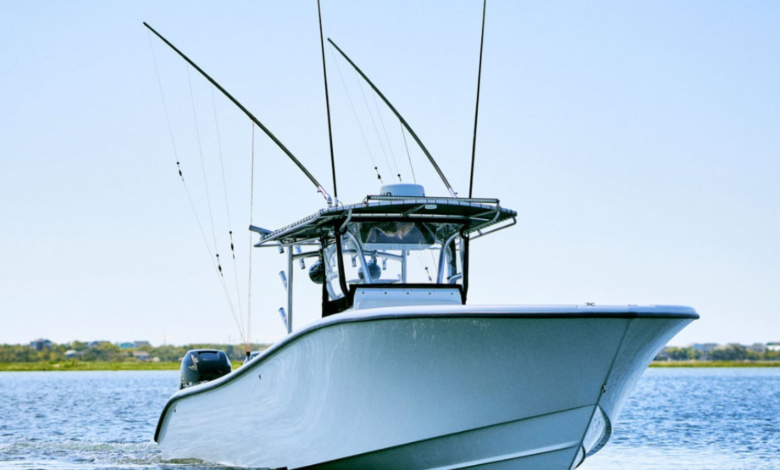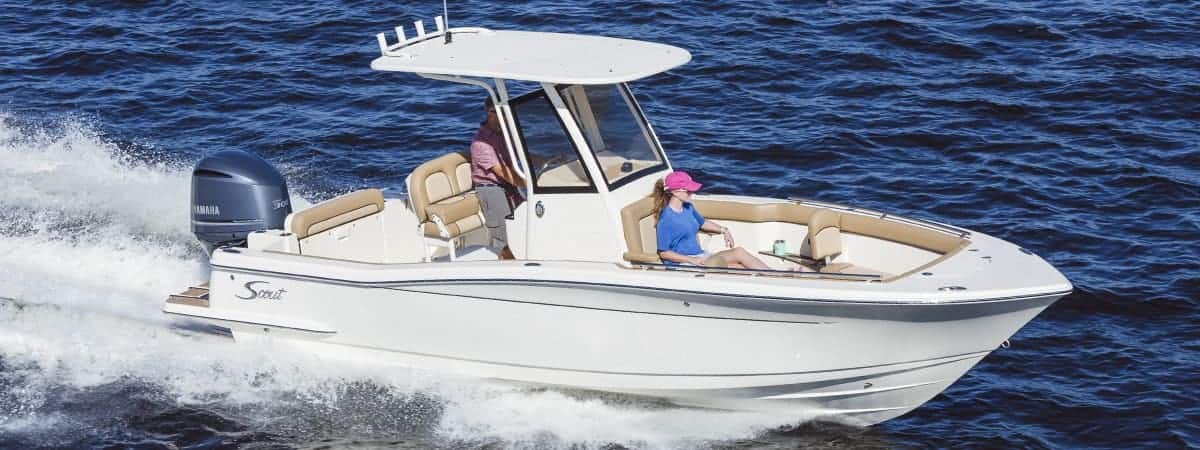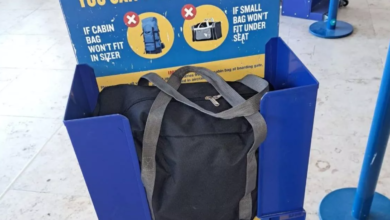Find a Fishing Boat: The Ultimate Guide for Beginners and Enthusiasts

Looking to find a fishing boat that suits your style, budget, and fishing goals? This expert guide covers everything you need to know about choosing, buying, and maintaining the right fishing boat.
Introduction: Why Finding the Right Fishing Boat Matters
When you first set out to find a fishing boat, the sheer number of options can feel overwhelming. From small aluminum skiffs to luxurious offshore vessels, the choices are nearly endless. Picking the right boat is not just about the size or the brand; it’s about finding the perfect match for your fishing style, your budget, and the waters you plan to explore.
The truth is, a fishing boat is more than just a vessel. It’s your platform for adventure, your tool for discovery, and often the heart of memorable fishing trips. Choosing the wrong boat can make your experience frustrating and costly. But choosing wisely can open doors to years of fun, successful fishing, and lasting memories.
Understand Your Fishing Needs Before You Find a Fishing Boat
Before you can find a fishing boat that’s right for you, it’s essential to understand what kind of fishing you enjoy—or hope to enjoy. Someone who loves quiet mornings on a calm lake will need something very different from someone chasing tuna miles offshore.
Ask yourself: Will you mostly fish freshwater or saltwater? Do you plan on fishing alone, with a friend, or with a whole group? Do you see yourself casting nearshore or cruising long distances? These questions shape the type of fishing boat that will fit your life best.
A simple mistake many new buyers make is falling in love with a boat’s look rather than its purpose. The sleek center console might look fantastic, but if you’re only fishing small lakes, it’s overkill. Similarly, that humble jon boat might be budget-friendly, but it won’t survive heavy ocean waves. Matching your needs with the boat’s design is the first—and most important—step.
Freshwater vs. Saltwater Considerations
Finding a fishing boat for freshwater usually means you’re dealing with calmer waters, which allows for smaller, lighter boats. Bass boats, pontoon boats, and aluminum skiffs dominate this category. They’re easy to tow, simple to maintain, and perfect for lakes and rivers.
Saltwater fishing, on the other hand, demands durability. Boats need to withstand corrosion, rougher waves, and longer distances. Center consoles, bay boats, and offshore vessels are often designed with these challenges in mind. Materials, engines, and accessories all need to be saltwater-ready. If you try to use a freshwater boat for saltwater conditions, it won’t just wear out quickly—it could put you in dangerous situations.
So when you set out to find a fishing boat, think first about where you’ll spend most of your time. That choice alone will narrow down your search dramatically.
Different Types of Fishing Boats You Can Consider
When you start digging deeper into your search to find a fishing boat, you’ll realize there isn’t a “one-size-fits-all” option. Each type of boat serves a specific niche, and knowing the differences helps you pick wisely.
Aluminum Fishing Boats
These boats are lightweight, easy to transport, and often the most budget-friendly. They’re perfect for lakes, rivers, and beginners who want something reliable without breaking the bank. Despite their simple look, they’re durable and get the job done.
Bass Boats
Designed specifically for freshwater bass fishing, these boats come with casting decks, trolling motors, and powerful engines. They’re built for precision and speed, making them favorites for competitive anglers.
Center Consoles
These are the go-to for saltwater fishing. The open layout makes it easy to move around, and the central helm gives full control. If you dream about offshore trips chasing big game, this is often the way to go.
Pontoon Boats
Pontoons might not be the first thought when you want to find a fishing boat, but they’ve grown in popularity. Modern models come equipped with fishing features, and they offer unmatched comfort for family outings.
Offshore Boats
Big, powerful, and built for long trips, offshore boats are serious machines. They often come with twin or triple engines, heavy-duty hulls, and luxury features. These are not for casual anglers, but they’re perfect if deep-sea fishing is your passion.
New vs. Used: Which Route Should You Take?
When you’re trying to find a fishing boat, one of the biggest questions is whether to buy new or used. Both options have their pros and cons, and the choice depends on your budget and comfort level.
Buying new means peace of mind. You’ll get the latest technology, full warranties, and no hidden surprises. The downside is cost—new boats depreciate quickly, just like cars.
Buying used can save you thousands, and you can often find boats in excellent condition if you do your research. The catch? You need to be cautious. Always inspect thoroughly, ask for maintenance records, and if possible, bring a marine surveyor along. A deal that looks great on the surface can hide expensive problems below.
How to Budget Smartly When You Find a Fishing Boat
The sticker price of a fishing boat is only the beginning. Smart budgeting is essential if you want your fishing experience to stay enjoyable instead of stressful.
First, consider ongoing costs: fuel, insurance, storage, licensing, and maintenance. A larger boat with twin engines might sound exciting, but can you afford to run it every weekend? Even small boats require routine care, so don’t underestimate those costs.
Second, factor in accessories. Rod holders, fish finders, coolers, and safety gear all add up. When you’re trying to find a fishing boat that fits your budget, don’t blow everything on the purchase price alone. Leave room for the extras that make fishing easier and safer.
Tips for Inspecting a Boat Before You Buy
When you finally find a fishing boat that looks promising, it’s time to inspect. This step is critical, especially with used boats.
Check the hull for cracks, dents, or repairs. Look for signs of corrosion around the engine and hardware. Pay attention to the wiring—messy or frayed wires can signal neglect. Test the bilge pump, lights, and electronics. A sea trial is a must; how a boat handles in the water tells you far more than a showroom can.
Don’t be afraid to ask tough questions. When was the last service? How many hours are on the engine? A serious seller will respect your diligence, and a shady seller will try to dodge. Trust your gut.
Financing Options When You Find a Fishing Boat

Not everyone can pay cash, and thankfully, financing a fishing boat has become easier than ever. Many dealerships and banks offer boat loans with flexible terms. Some even specialize in marine lending, which can help you get better rates.
Before you sign anything, shop around. Just like with mortgages, the first offer isn’t always the best. Pay attention to the length of the loan, the interest rate, and any hidden fees. The longer you finance, the more interest you’ll pay in the end.
Safety Should Be Your First Priority
When you’re excited to find a fishing boat, safety often takes a backseat. Don’t let that happen. No fishing trip is worth risking lives.
Always have life jackets for everyone onboard. Carry a first-aid kit, fire extinguisher, flares, and a marine radio. Learn the basics of navigation and weather forecasting. Many accidents happen simply because people underestimate the water. A safe angler is a smart angler.
Maintaining Your Boat After Purchase
Finding a fishing boat is just the beginning. Keeping it in good shape ensures it lasts for years and holds its value.
Flush the engine after every saltwater trip to prevent corrosion. Keep the hull clean and waxed. Check batteries, wiring, and pumps regularly. Schedule annual service with a certified mechanic. It’s far cheaper to maintain your boat than to fix it after neglect.
Think of your boat as an investment. Just like a car, it needs consistent care. Treat it right, and it will reward you with reliable performance and higher resale value down the road.
Best Places to Start Your Search
Now that you know what you’re looking for, where do you actually go to find a fishing boat? Thankfully, there are many reliable sources.
Boat dealerships are a good starting point, especially for new buyers. They offer warranties, financing, and professional guidance. Online marketplaces like Boat Trader or YachtWorld give you access to thousands of listings. Don’t overlook local classifieds or marinas—sometimes the best deals are right in your backyard.
Boat shows are another goldmine. You can see multiple models in one place, compare features, and often snag special pricing. Plus, you get to talk directly with experts who know the ins and outs of each boat.
Common Mistakes to Avoid
When trying to find a fishing boat, it’s easy to get swept up in excitement. But mistakes can cost you dearly.
One of the biggest mistakes is buying too much boat. It might look impressive, but if it’s more than you can handle, both financially and practically, it will become a burden. Another mistake is ignoring resale value. Boats with popular designs and trusted brands tend to hold their value better.
Finally, don’t skip the test run. Pictures and descriptions can’t replace the feeling of handling the boat in real water. Skipping this step is like buying a car without driving it—risky and unwise.
Expert Quote to Keep in Mind
“The best boat isn’t the biggest or the flashiest—it’s the one that matches your lifestyle and brings you back to the water again and again.”
Frequently Asked Questions
How do I know what size fishing boat I need?
It depends on where you plan to fish and how many people you’ll bring. Small lakes can be handled with smaller boats, while offshore trips need larger, sturdier vessels.
Is buying a used fishing boat a good idea?
Yes, if you inspect carefully. Used boats can save you money, but always check maintenance records and take it for a sea trial before committing.
Do I need a license to operate a fishing boat?
Regulations vary by state or country. In most areas, you’ll need at least a boating safety certificate, and larger boats may require specific licensing.
What’s the average cost of a fishing boat?
Prices range widely. Simple aluminum boats can cost a few thousand, while offshore boats easily exceed six figures. The key is finding one that fits your budget and fishing needs.
How often should I service my fishing boat?
At least once a year, or more if you use it heavily. Engines, electronics, and safety equipment all need routine checks to stay reliable.
Conclusion: Finding Your Perfect Fishing Boat
To find a fishing boat that fits your lifestyle is a journey worth taking. It requires research, patience, and honesty about your needs and budget. But once you find the right one, it transforms your fishing experience. It’s not just about catching fish—it’s about freedom, adventure, and creating memories that last a lifetime.





